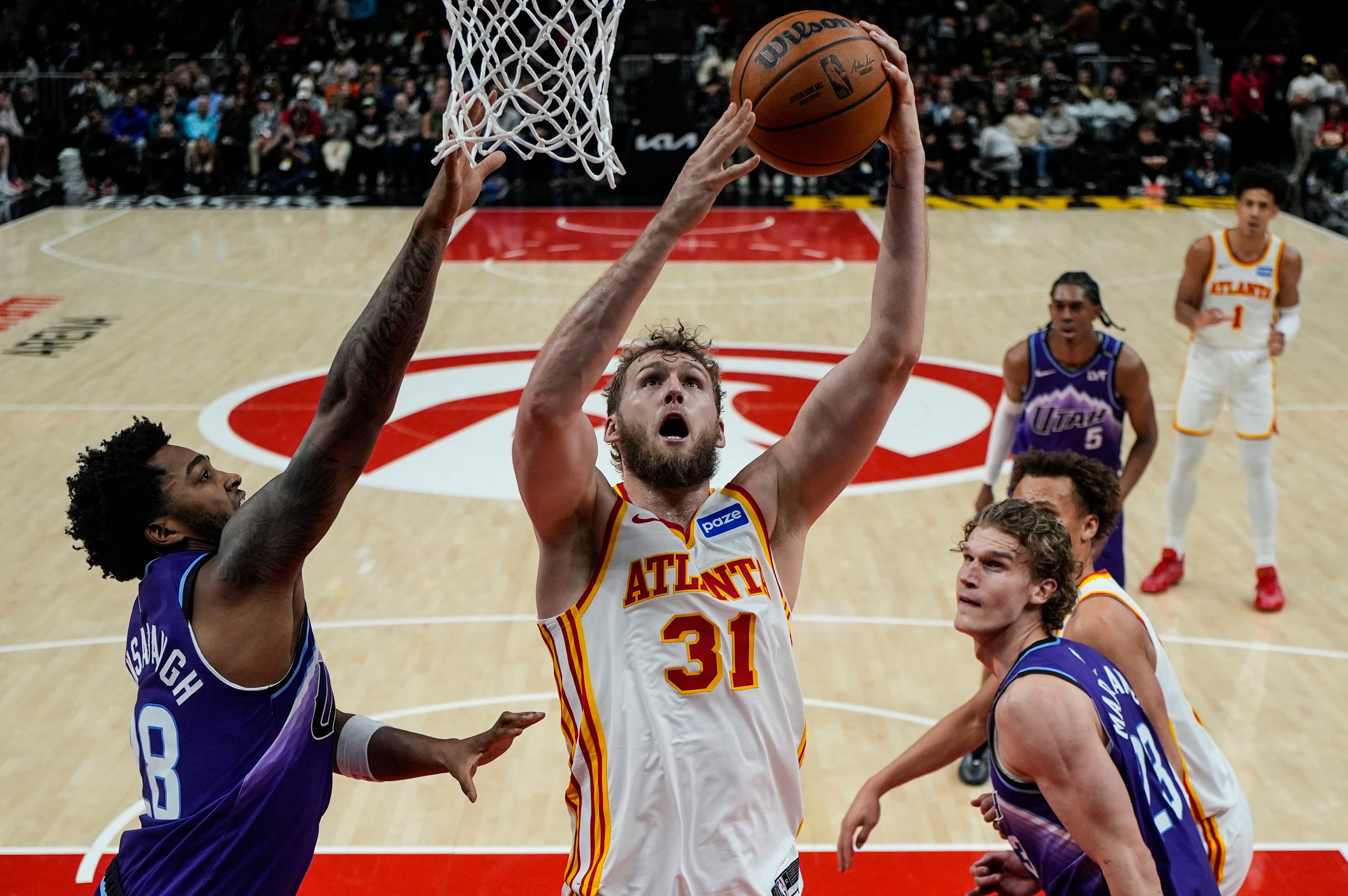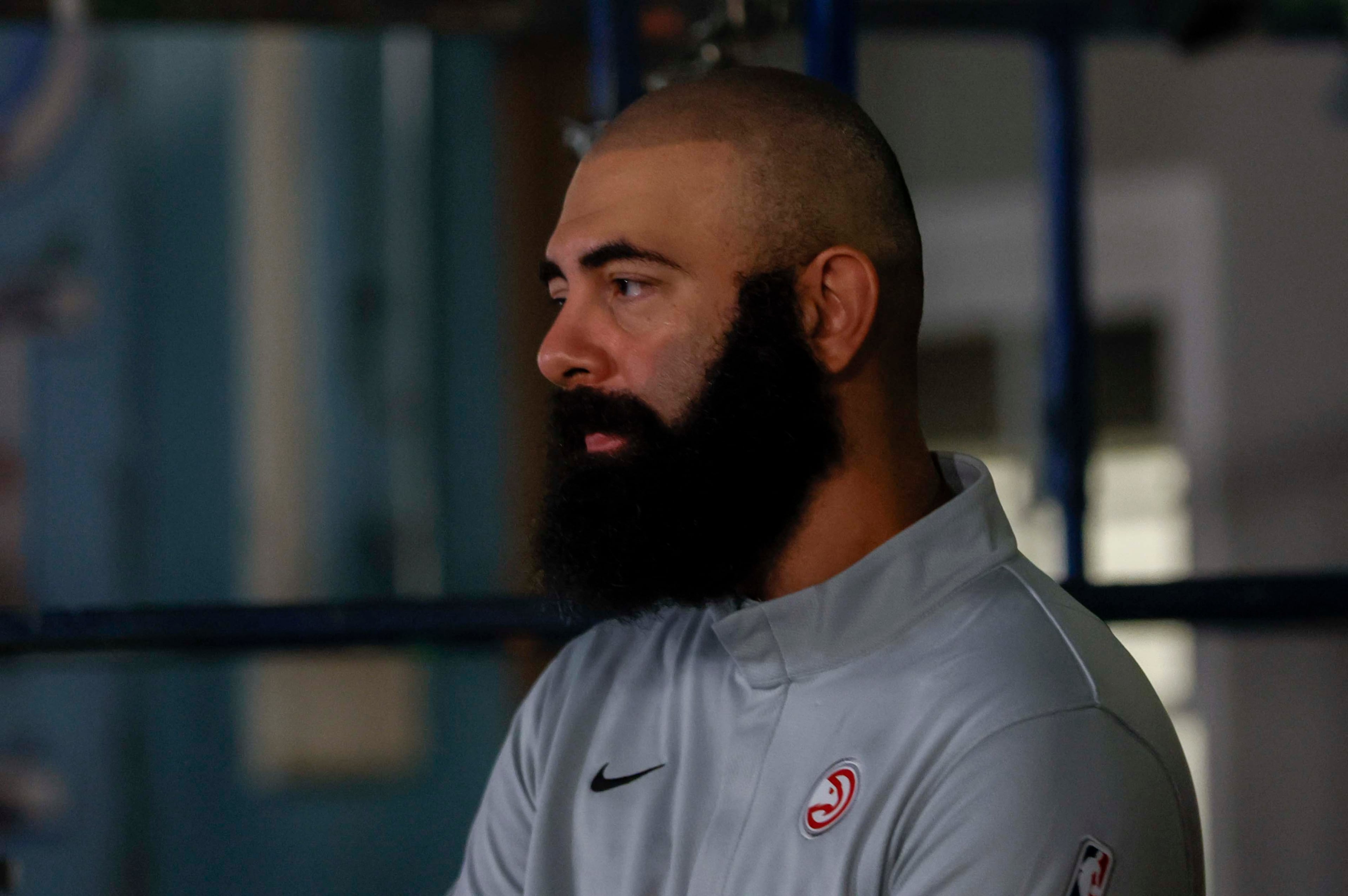Hawks learning hard lessons about playoffs
CLEVELAND – Once you get past the lazy, knee-jerk narrative playing out in some corners of the media universe – “The Hawks are the most pathetic, overrated conference finalist in the history of the world! Or at least since I started blogging!” – there is a reality settling in about this team. They’re just not there yet.
The Hawks’ opponent in the Eastern Conference finals, Cleveland, is not a great team but it has the only player in the NBA capable of taking over a game at any moment. A healthy Hawks team would have three strong defenders —DeMarre Carroll, Thabo Sefolosha, Kent Bazemore — to throw at LeBron James, thereby increasing the possibility of wearing James down and/or forcing a lesser Cavalier to take a shot in crunch time.
But they’re ailing and they’re on the verge of expiration.
This postseason and certainly this series, which tilts 3-0 in Cleveland’s favor, has reaffirmed the Hawks’ flaws. They need another shooter so Kyle Korver isn’t running marathons to get open every game. They need another big man so guys like Tristan Thompson aren’t allowed to morph into Wilt Chamberlain.
Most of all, they need the attitude they brought in Game 3 Sunday night but inexplicably missed in the first two games of this series.
“We’ve been together for two years,” Paul Millsap said. “We’re still learning how to win games. Still learning how to win close games. Still learning how to win playoff games.”
This isn’t about scheme or player rotations. In any sport, winning in the postseason is a different animal. It’s common for teams to have to lose a few times before understanding what it takes to get to the next level. It’s like beneficial scar tissue.
“More physicality. Going harder and longer, being stronger. Doing what we do but doing it a little harder,” Millsap said.
There’s no guarantee the Hawks would have beaten Cleveland even if they came to that realization a earlier. But they probably wouldn’t be on the verge of being swept.
It shouldn’t take Al Horford being thrown out of Game 3 on a botched Flagrant-2 foul call by the NBA’s Keystone precinct for Hawks players to realize they had another gear in them.
Horford was upset when he believed Cleveland’s Matthew Dellavedova was “reckless” and intentionally dove at his knees while going for a loose ball in the second quarter. He responded with an elbow to Dellavedova’s shoulder area, certainly worthy of a foul.
Officials deemed it worthy of an ejection. The old NBA would’ve called a couple of fouls and said, “Play on.”
Chicago’s Taj Gibson was similarly ejected for retaliating to Dellavedova in a second-round series, and Dellavedova was the same player who fell on Korver’s ankle in Game 2. So you can see why Horford said the Cavaliers’ guard has a “track record” for this sort of thing. Dellavedova vehemently denied that and James came to his teammate’s defense.
“Are we going to talk about us trying to win basketball games or about those guys trying to figure out a way that Matthew Dellavedova is this type of … this guy, he works his tail off every single day,” he said. “If they’re focused on Delly, then they’re focused on the wrong thing.”
James can’t be objective about his teammate but he actually makes a valid point. Players are just trying to win a game. That doesn’t mean Horford wasn’t justified getting angry but an increase in physical play should be expected in the playoffs.
And once more with feeling: The ejection was absurd but the NBA is probably too spineless to admit as much after the fact.
The moment seemed to galvanize the remaining Hawks. They played with a passion and an edge that they had been absent – despite missing Horford, Korver and Sefolosha, and with Carroll laboring on a badly sprained knee. They rallied from a 10-point deficit early in the fourth quarter to tie the game at 97-97 with 4:32 left and jumped ahead by four points (104-100) with 1:38 left on consecutive buckets by Jeff Teague.
But Cleveland pulled the Hawks into overtime and James, playing with cramps and knee pain, willed the Cavs to a win with consecutive jumpers in the final 30 seconds.
What if the Hawks had played with this kind of drive in the first two games? Would this series be different?
“Definitely,” Teague said, “especially with the home crowd behind us and being familiar with our gym. That’s on us that we didn’t play as well as we could in Games 1 and 2.”
Lesson learned.


